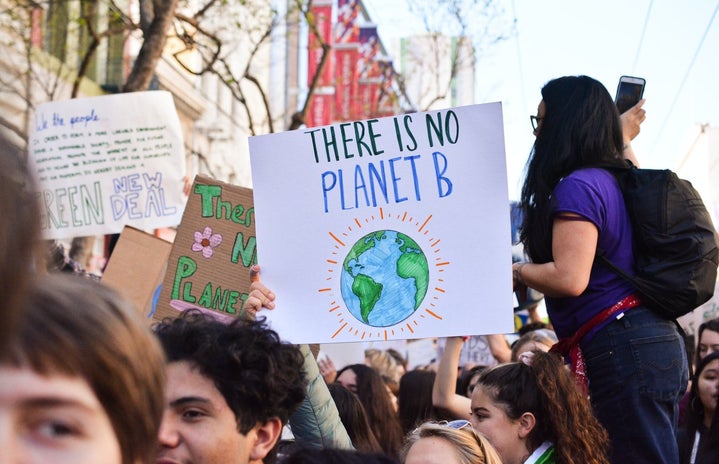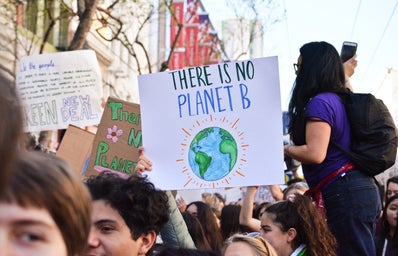Has Covid-19 accelerated the drive for sustainability? The question is undoubtedly one that has been asked repeatedly since the start of the pandemic, as well as throughout the lockdowns that came along with it. From a psychological perspective, Covid-19 has brought a time of unprecedented isolation for millions around the world; prompting more and more people to turn on their TV, watch the news, and pay attention to what has been happening around the world. Specifically, it is my view that with more time on our hands, most of us have become increasingly aware of the exact predicament we are in when it comes to the environmental crisis. Alongside this awareness comes the increased social responsibility of individuals to shop and consume more ethically, and to pressure governments and private companies to prioritize sustainability as a primary goal. The effect is an increased pressure on firms and individuals to adhere to corporate social responsibility guidelines, and to place employee health and safety, job security, and most importantly, responsible supply chain management at the forefront.
On a smaller scale, I believe that we are all learning the great magnitude of this global crisis, and recognizing the enormous toll that our constant travel, consumption of fast fashion, and throw-away economy has had on our planet. For many, reflecting on their individual consumption habits has had the positive impact of heightening their understanding of their contribution to the degradation of the planet, and inspiring them to change those ways to minimize the effects of such an anthropocentric crisis. Examples of this changing behavior include shifting priorities in the mobile sector and increasing electric vehicle sales during the pandemic. In fact, according to Deloitte, the market share of electric vehicles (EV) has surged to a record-high of 3% globally and is as high as 17% in the UK. Likewise, the demand for renewable energy and clean technologies have increased – with the US renewable energy consumption increasing by 40%, and that of India increasing by a 45% margin.
From a more literal angle, the pandemic has taken much of the environmental situation out of the public’s control by causing economic activity, transportation, and general carbon emission production to come to a grinding halt. Furthermore, global supply chains that contribute greatly to carbon emissions have also been disrupted; proving that the pandemic has had a considerable impact on the preservation of the planet.
There have also been more companies and governments making a pledge to sustainability. Firms like Blackrock are encouraging more green investment. Green investment encourages social responsibility by diverting funds away from projects which present a high risk for sustainability and environmental protection. In France, government support for the local airline AirFrance will be conditional on rapid, efficient, and eco-friendly improvements and scaling up of biofuels. Similarly, many African countries have experienced a shift to solar energy as a result of the recognition that reliance on non-renewables like fossil fuels creates a major disruption for their energy supply in times of global pandemonia, and hence, renewable energy has become the best option to curb such restrictions. Furthermore, the election of President Biden also promises an improvement to US environmental policies and sustainable practices, which could be potentially game-changing as it is currently one of the largest contributors to global warming.
Moreover, while there is no doubt that the pandemic has positively impacted the drive for sustainability, there is great uncertainty as to whether the positive effects brought about by the pandemic will remain once lockdown days are over. Unfortunately, there is already evidence of some airports starting to operate as usual again, and air pollution in major cities like London are back at high levels. The question then remains: when the pandemic eventually comes to an end, will large corporations significantly alter their behavior for the better? I, personally, argue that if the momentum for sustainability this past year has been genuine, and if consumer choices continue to adhere to social responsibility, then yes, there is good reason to believe that COVID-19 has in fact accelerated the drive for sustainability
However, while it is important to appreciate the good changes noted above, it is critical to understand some of the negativities the pandemic has brought about – especially when we talk about sustainability. Sadly, the pandemic has pushed many people into poverty due to the loss of income for daily wage earners, increasing unemployment, and so on. Experts have estimated that the number of people living in extreme poverty could surpass one billion by 2030. As a consequence, much of the UN’s sustainable development goals (SDG’s) and their progress will come to halt. Furthermore, with so many being confined to the indoors, the tendency to shop fast fashion has increased tremendously, with dozens of retailers such as Asos, Amazon, Bershka, Zara, H&M, and more, hosting extreme sales that result in bulk buying orders that ultimately produce tonnes and tonnes of waste.
Although there are many businesses starting to take action, the current response does not match up to the scale and urgency that the situation requires. In fact, a Deloitte Global survey reported that 91% of executives said that their businesses have felt the impact of climate change, but that gaps in progress and action remain.
The pandemic has forced businesses and consumers to be more sustainable – but in a post-pandemic world – can we actively and consistently choose to be more sustainable?
What can be done in response to the sustainability hurdles presented by the pandemic?
We need to adopt the SDG push. The SDG push requires ambitious, radical interventions and behavioral changes on all levels of society. Governments must be called upon to improve their efficiency and support for environmental protection policies, and citizens need to change consumption patterns in food, energy, water, retail, and travel. On a global scale, collaboration for environmental issues has to improve – this includes global support for carbon taxes, and subsidies for green technology and renewable energy, for example.
Overall, it’s hard to say whether the pandemic has accelerated the drive for sustainability. On the one hand, it has done so in very direct and tangible ways, as mentioned above. But, can these improvements in behavior be sustained and further accelerated post-pandemic for the sake of environmental sustainability? Let’s hope so.



